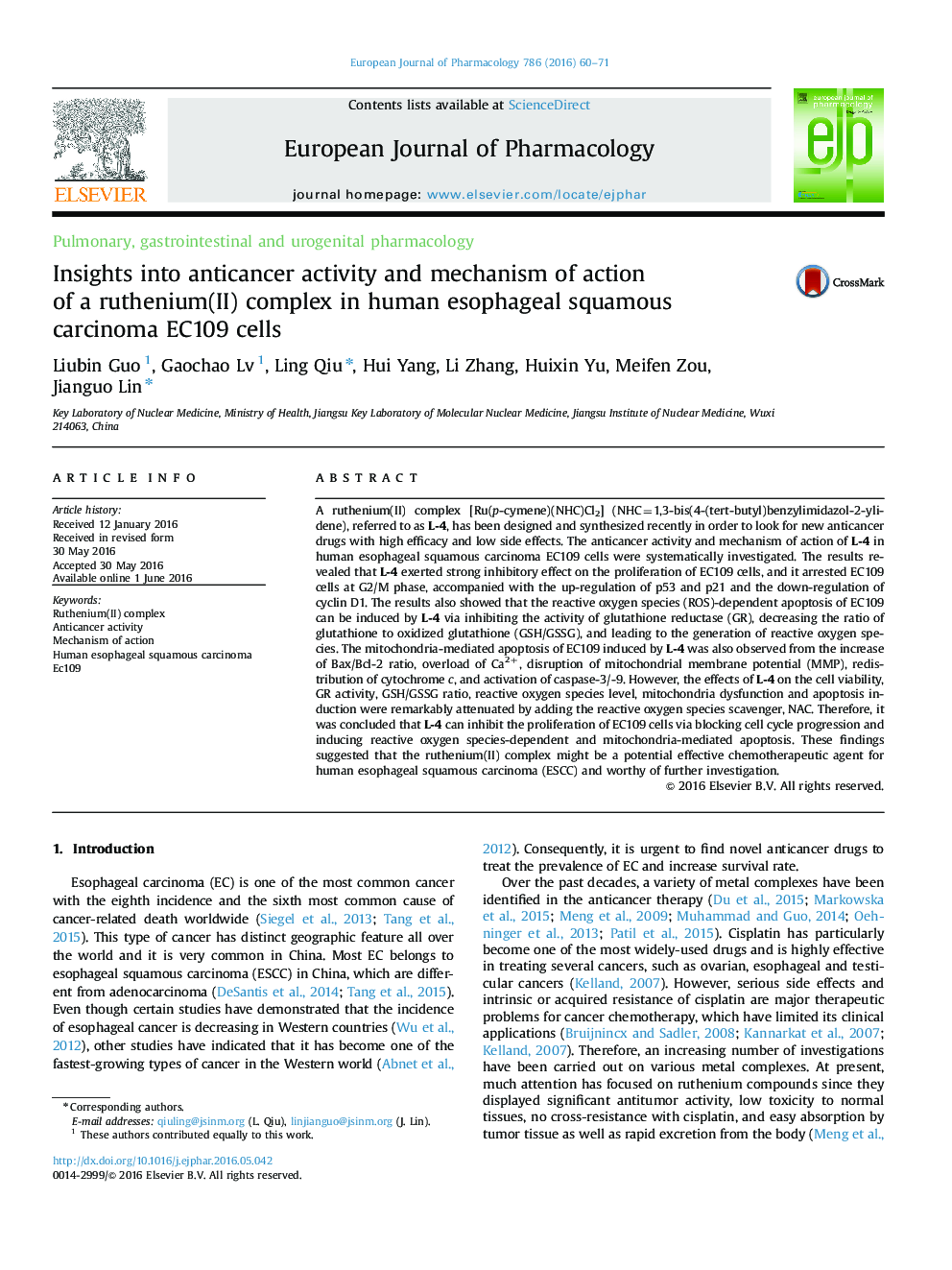| کد مقاله | کد نشریه | سال انتشار | مقاله انگلیسی | نسخه تمام متن |
|---|---|---|---|---|
| 2531004 | 1558894 | 2016 | 12 صفحه PDF | دانلود رایگان |

A ruthenium(II) complex [Ru(p-cymene)(NHC)Cl2] (NHC=1,3-bis(4-(tert-butyl)benzylimidazol-2-ylidene), referred to as L-4, has been designed and synthesized recently in order to look for new anticancer drugs with high efficacy and low side effects. The anticancer activity and mechanism of action of L-4 in human esophageal squamous carcinoma EC109 cells were systematically investigated. The results revealed that L-4 exerted strong inhibitory effect on the proliferation of EC109 cells, and it arrested EC109 cells at G2/M phase, accompanied with the up-regulation of p53 and p21 and the down-regulation of cyclin D1. The results also showed that the reactive oxygen species (ROS)-dependent apoptosis of EC109 can be induced by L-4 via inhibiting the activity of glutathione reductase (GR), decreasing the ratio of glutathione to oxidized glutathione (GSH/GSSG), and leading to the generation of reactive oxygen species. The mitochondria-mediated apoptosis of EC109 induced by L-4 was also observed from the increase of Bax/Bcl-2 ratio, overload of Ca2+, disruption of mitochondrial membrane potential (MMP), redistribution of cytochrome c, and activation of caspase-3/-9. However, the effects of L-4 on the cell viability, GR activity, GSH/GSSG ratio, reactive oxygen species level, mitochondria dysfunction and apoptosis induction were remarkably attenuated by adding the reactive oxygen species scavenger, NAC. Therefore, it was concluded that L-4 can inhibit the proliferation of EC109 cells via blocking cell cycle progression and inducing reactive oxygen species-dependent and mitochondria-mediated apoptosis. These findings suggested that the ruthenium(II) complex might be a potential effective chemotherapeutic agent for human esophageal squamous carcinoma (ESCC) and worthy of further investigation.
Figure optionsDownload high-quality image (241 K)Download as PowerPoint slide
Journal: European Journal of Pharmacology - Volume 786, 5 September 2016, Pages 60–71